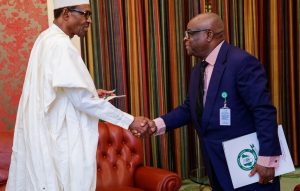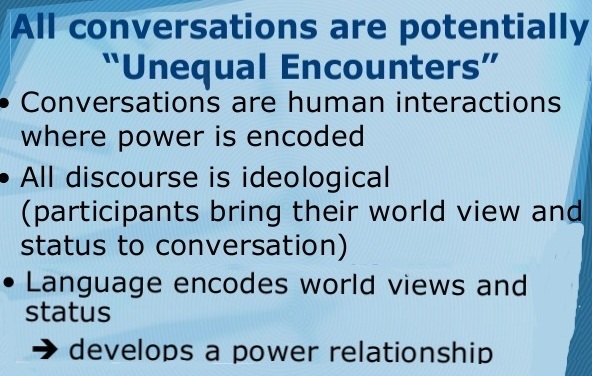Why might the Chief Justice of Nigeria be called a teacher? The Chief Justice might be called so because his planned trial has demonstrated again how truths emerge rather than what truth is. Those who are lost in studying what is truth will be perplexed about what has transpired. Those who are keener on how truths emerge will be excited.
Once the media became aware of the planned trial, the politics of truth making started. The claims against him were claims of incomplete assets declaration which were tied to constitutional provisions thereto. But, when is an assets declaration complete or incomplete?

Each dominant player intervening in the palaver has his or her own interpretation of it. Some saw something fishy in how the charges emerged just within three days. Others read the planned trial in terms of a similar constitutional provision about trial of such office holders without the National Judicial Council carrying out an investigation first. For others, it is a signal of a despotic assault on democracy. And for yet another set of discussants, the planned trial failed to fulfill the comparative test. That is, why send the CJ to the tribunal when there are many other such cases before him? Of course, there were those who said it is a case of fighting corruption and an opportunity to make a ‘bigman’ account for his deeds. There was the partisan dimension too: as soon as the PDP kicked against it, the APC said, oh, that is a demonstration of its inclination or sympathy for corruption.
From these inter-discursive claims and counter-claims, the associated practices began to be acted out. The most interesting might be the over 40 tough senior lawyers who assumed the defense team. The dynamics worked out in such a way that the Chief Justice was nowhere before any tribunal Monday morning as was planned. Discourse has produced a power superior to state power as far as the appearance or non-appearance of the CJN for the trial went. That proves the claim that discourse, (language use) is constitutive of power, power that is as powerful if not more powerful than the three other types of power – coercive, structural and institutional. And that reality or truth do not stand out there objectively but are things that we construct in our everyday lifeworld.
Those who have been brought up to think that reality or truth have objective status that can be proved through careful research will be stunned by this development. Instead of such truth or reality, the facts of what the CJN did or didn’t do became interpretations in the hands of both his traducers as well as his defenders. The facts of accounts in hard currencies became meaningful or meaningless depending on who is using the same set of facts. Discourse is not about truth or false but about how every speaker, writer or user of words anywhere, anytime is bidding for power because he or she is engaged in defending or interrogating something that exists.

State governors of the Southsouth of Nigeria

The president and the CJN in a previous picture
If truth and/or power are products of our framing of reality rather than reality itself, why isn’t everyone powerful then? It doesn’t happen that way because there is a context conditionality to it. The mental, structural and institutional context must be such that a particular language use can translate to truth. In the present context of widespread, delegitimising suspicion of the Buhari regime for exclusionary and alienating practices, any interpretation of the planned trial of the CJN as a cabalistic grand move is bound to make sense. It is bound to sell. If the government had sent Babachir Lawal, for example, for trial and followed it up with other obvious cases, a claim that the CJN is being targeted would have hit the wall. So, context matters. Although context is not an OBJECTIVE thing, those who talk about post-truth do not know what they are talking about.
The claim of the relativity or contingency of truth is a claim to take seriously because, otherwise, we would all become fundamentalists in our defence of one ideal or the other. One man’s truth can be another man or woman’s falsehood. In a diverse society of differing perceptions and mental/cultural outlooks, the only guarantor of peace is creating and nourishing the capacity of citizens to participate in meaning making through an inter-subjective process. That way, every voices will be heard and the truth that emerges from that conversation will always be that of the most popular framing of reality rather than that of hegemons. Since even terrorists can be hegemonic, there lies the danger in refusing or being clever against empowering the majority to hold contextually informed opinion. Such is an unfailing invitation to instability. The answer is to pay attention to qualitative education for all. This is another way of agreeing with those who say that if qualitative education is too costly, then try ignorance and certificate education. Certificate education is what Nigeria offers her citizens now, not the mass education that can produce a critical mass of balanced citizens.
Nigeria must, therefore, thank the CJN whose planned trial has produced the unintended consequence of bringing home most powerfully the connection between discourse, context and power. It is the power that flows from discourse that informs the conclusion that power is everywhere rather than the exclusive property of possessors of great stock of arms or of political leaders. In the case of the planned trial of Justice Onnoghen, discourse has produced power that has upstaged the power of The Presidency. It is besides the point whether The Presidency was truthful or otherwise. It is a matter of the constructedness and relativity of truths.




























